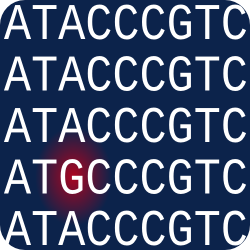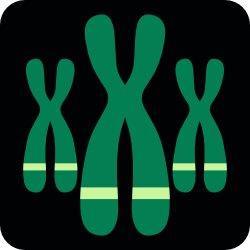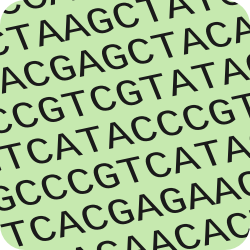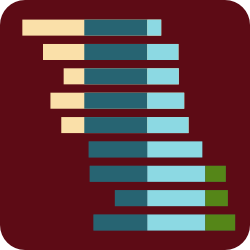
The National Center for Biotechnology Information (NCBI) hosts several bioinformatic databases as well as analytical resources. These are but a few of the more popular databases; for a full listing, explore the NCBI site. There is also a YouTube channel with a variety of training materials for using NCBI resources.
 |
The 1000 Genomes Browser is an interactive graphical viewer that allows users to explore variant calls, genotype calls and supporting evidence (such as aligned sequence reads) that have been produced by the 1000 Genomes Project. |
 |
BLAST (Basic Local Alignment Search Tool) finds regions of similarity between biological sequences. The program compares nucleotide or protein sequences to sequence databases and calculates the statistical significance. |
 |
ClinVar is a public, tracked record of reported relationships between human genetic variation and observed health status with supporting evidence. All records Include a review status of the evidence for given clinical assertions and links to original research. |
 |
The E-utilities API provides programmatic access to several NCBI databases, including PubMed, Genome, Nucleotide, and dbSNP. EDirect offers UNIX command-line utilities for automating E-Utilities queries and processing results. |
 |
Gene contains curated information about genes from a variety of species. Records include nomenclature, chromosomal location, gene products, phenotypes, and links to citations and external databases. |
 |
The Gene Expression Omnibus is a public functional genomics data repository of curated gene expression profiles. The related tool, GEO2R, can be used to perform differential expression analyses on GEO Series |
 |
The Genetic Testing Registry houses information on genetic tests and laboratories, including single-gene tests as well as arrays, panels, and pharmacogenetic tests. |
 |
MedGen organizes information related to human medical genetics, such as attributes of conditions with a genetic contribution. You can use the database to search for relationships between medical conditions and specific genes. |
 |
The Nucleotide database is a collection of sequences from several sources, including GenBank, RefSeq, TPA and PDB. Genome, gene and transcript sequence data provide the foundation for biomedical research and discovery. |
 |
The Sequence Read Archive is NIH's primary archive of high-throughput sequencing data from a variety of sequencing platforms, including Roche 454, Illumina, ABI, and PacBio. |
Main Library | 1510 E. University Blvd.
Tucson, AZ 85721
(520) 621-6442

University Information Security and Privacy
© 2023 The Arizona Board of Regents on behalf of The University of Arizona.

